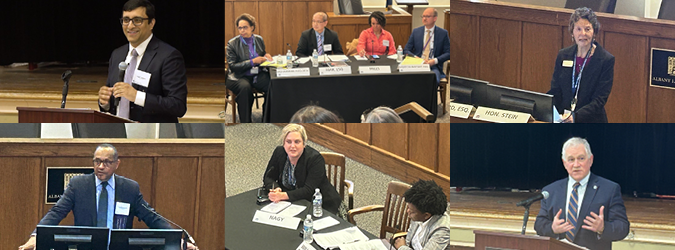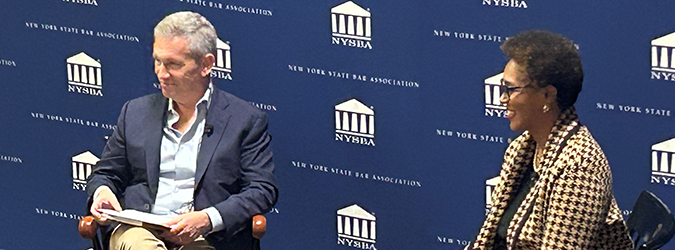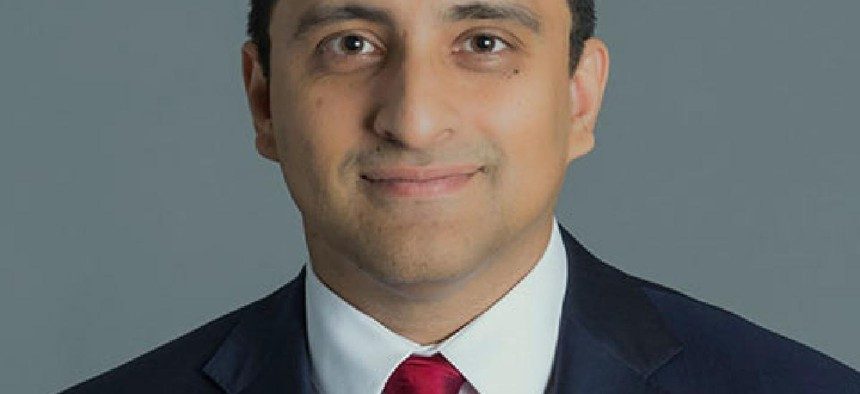Where Do We Go From Here? Dispute Resolution DEI Initiatives After the Students for Fair Admissions Decision
3.26.2024

In recent years, dispute resolution service providers, professional associations and court-annexed ADR programs have launched initiatives to increase diversity, equity and inclusion among dispute resolution practitioners. These programs seek to recruit, train and support members of historically underrepresented communities in the mediation and arbitration fields and provide them with the necessary training and experience to excel. These initiatives have proffered various definitions for “diversity” or “historically underrepresented”; however, most fellowship and mentorship programs were designed to benefit applicants who identify as Black, indigenous, a person of color, a member of the LGBTQ+ community, a person with disabilities or women, all of whom are underrepresented in the dispute resolution field.[1]
In June 2023, the Supreme Court issued a landmark decision, Students for Fair Admissions, Inc. v. President & Fellows of Harvard College and Students for Fair Admissions, Inc. v. University of North Carolina, which held that the universities’ race-conscious admissions systems violated the Equal Protection clause of the 14th Amendment. In previous affirmative action decisions such as Bakke (1978), Grutter (2003) and Fisher (2013) the court held that obtaining the educational benefits that flow from a racially diverse student body was a compelling governmental interest and that the use of race as a factor in higher education admissions was constitutionally permissible.[2] However, in this decision, the court changed course. Reviewing the court’s fractured precedent, Chief Justice John Roberts noted that to survive constitutional muster, race-based classification systems in the educational context must: (1) comply with strict scrutiny; (2) eschew racial stereotyping or avoid unduly harming non-minority applicants; and (3) have a definite termination point. According to the majority, Harvard and UNC’s admission procedures failed all three.
Training a critical eye on the universities’ goals for considering race in their selection process – which included (1) “training future leaders in the public and private sectors”; (2) preparing graduates to “adapt to an increasingly pluralistic society”; (3) “better educating its students through diversity” and (4) “producing new knowledge stemming from diverse outlooks”[3] – Roberts determined they were unmeasurable and overbroad and thus “not sufficiently coherent for purposes of strict scrutiny.” Additionally, the court found that the Harvard and UNC admissions programs failed to “articulate a meaningful connection between the means they employ and the goals they pursue.”[4] The court labeled the racial categories used by the admissions program, such as “Asian” or “Hispanic,” to be overbroad and imprecise and determined that their use led to illegitimate stereotypes. Lastly, the court, citing Grutter, said that the admissions practices were unconstitutional because they “used race as a negative” for non-minority applicants and had “no logical endpoint.”[5]
Although the court did bar academic institutions from treating a student’s membership in a particular racial or ethnic group as conferring advantage in the admissions process, it did not prohibit universities from considering how an applicant’s life is affected by race, either through discrimination or other means.[6] The court was clear, however, that race alone cannot be the determinative factor and that a student must be “treated based on his or her experiences as an individual – not on the basis of race.”[7]
While the Students for Fair Admissions decision applies only to admissions for academic institutions, conservative activists bent on eliminating race as a factor in the employment arena have begun to target big law DEI fellowship programs.[8] This article will briefly discuss these legal challenges and offer considerations in the wake of the Students for Fair Admissions decision that may be relevant to those implementing dispute resolution DEI fellowship and mentorship programs.
Threats and Suits Against Law Firms
In a fusillade of litigation, begun barely two months after the Supreme Court handed down its decision in Students for Fair Admissions, the American Alliance for Equal Rights, helmed by Edward Blum, the major force behind the plaintiffs in the case, took aim at the 1L fellowships offered by Perkins Coie, Morrison Foerster and Winston Strawn. The suits, brought in federal district courts in Texas and Florida, alleged that the fellowships’ selection criteria excluded straight white men and thus had been “racially discriminating against future lawyers for decades.”[9] Citing the Students for Fair Admissions’s oft-repeated tag line that “eliminating racial discrimination means eliminating all of it,” the alliances’ legal papers claim that the firms’ programs violate 42 U.S.C. Section 1981, a Reconstruction-era statute passed to help newly freed slaves enter historically segregated markets. In an ironically ahistoric reading of 1981’s requirement that “[a]ll persons . . . have the same right . . . to make and enforce contracts . . . to the full and equal benefit of all laws . . . as is enjoyed by white citizens,” the alliance argues that the 1866 law requires courts to shutter programs meant to usher people of color into jobs and positions of wealth and power from which they remain disproportionately excluded. The suits against Perkins and Morrisson served as the basis for a wave of letters threatening similar litigation sent to other notable firms, including Fox Rothschild, Susman Godfrey, Adams and Reese and Hunton Andrews Kurth.
Although law firm responses have varied, the campaign has been largely successful in pressuring firms to change their fellowship program’s eligibility criteria and application procedures. In response to actual or threatened litigation, the singled-out firms removed references to race, ethnicity or membership in historically disadvantaged groups. The firms replaced those criteria with other requirements, including demonstrated commitment to DEI principles, ability to bring a different perspective or voice to the firm, or evidence of resilience and ability to overcome hardships and barriers.
Perkins Coie modified the selection criteria for its diversity and inclusion fellowship program, eliminating an earlier requirement that applicants be members of minority or underrepresented groups and affirming that the fellowships for first- or second-year law students are open to “all students in good standing . . . regardless of race, color, religion, sex, age, national origin, veteran status, sexual orientation, gender identity/gender expressions, disability status, or any other identity.”[10] Morrison Foerster’s program, originally available to law students who could claim membership in groups historically underrepresented in the legal profession, including students of color, students who identify as LGBTQ+ and students with disabilities, was changed to invite applications from all students with a “demonstrated commitment to promoting diversity, inclusion and accessibility” as well as “the ability to bring a diverse perspective to the firm as a result of . . . adaptability, cultural fluency, resilience and life experiences.”[11] Both Perkins Coie and Morrison Foerster stipulated at the time that the suits against them were dropped that their programs would not ask or require applicants to identify their race and would not revert to using race or underrepresentation in the legal profession as a criterion for future iterations of their programs.
Winston Strawn erased earlier selection criteria that mandated students be “members of disadvantaged and/or historically underrepresented groups in the legal profession.”[12] Currently, Winston asks applicants possess a record of excellent academic achievement and show “demonstrated commitment to promoting the firm’s values of diversity, equity and inclusion within the community during college, law school or otherwise.”[13] Additionally, the firm seeks students who “bring a unique perspective to the firm based on an applicant’s experiences as an individual, including the challenges overcome, skills built, or lessons learned that have shaped the applicant’s identity.”[14] In similar fashion, Fox Rothschild removed any mention of race from its program description, explaining instead that fellowships would be awarded based on “academic achievement, demonstrated leadership . . . entrepreneurial ambition and a commitment to diversity and inclusion efforts in the legal community.”
Hunton Andrews Kurth similarly modified its eligibility criteria, scrubbing earlier requirements that students be Black, Hispanic, Native American or a member of another racial or ethnic group, LGBTQ+, a veteran or a person with a disability. Current requirements focus on a student’s demonstrated “commitment to championing and advancing diversity, equity and inclusion in their personal, academic and professional pursuits.” In Susman and Godfrey’s 2022 flyer seeking applications for its summer diversity program for 1Ls, the firm explicitly encouraged “women, racial minorities, LGBTQ+ students, and anyone from a group that is underrepresented in the legal profession” to apply. This year’s description on the firm website states that the fellowship is open to first-year students who “have overcome personal or systemic hardships or disadvantages, including experiences of those who self-identify as members of groups underrepresented in today’s legal profession.”[15] Adams Reese simply decided to discontinue its 1L diversity program, which reserved two spots in the summer associate class for minority law students or those who came from underrepresented groups.[16]
The Applicability of 42 U.S.C. Section 1981 to Law Firm 1L and 2L DEI Programs
It seems clear that 42 U.S.C. Section 1981, which bars private employers from discriminating on the basis of race in their employment contracts, applies to law firm diversity fellowships. These fellowships incentivize first- and second-year students to commit to work at the offering firm by promising robust weekly salaries, attractive stipends, individualized mentoring and training, particularized exposure to choice firm clients and access to networking opportunities not available to other summer associates generally. The goal is to encourage the student to spend their summer working at the firm, with the hope that if the student meets the firm’s standards, the initial summer relationship could be extended into longer term employment. Indeed, most of the fellowship stipend payments resemble signing bonuses, enriching students who agree to spend a second summer or accept a post-graduate position as a full-time employee.
The diversity fellowship recipients receive stipends that range from $15,000 to $50,000 on top of their standard summer associate salary and are designed to encourage continued involvement with the firm from the first summer to the second summer and on to an associate full-time position.[17] Whether dispute resolution DEI programs offered by courts, professional organizations or private providers are similarly vulnerable to challenge under Section 1981 remains an open question.
Existing DEI Dispute Resolution Fellowships
Three groups in the dispute resolution community are primarily responsible for the fellowship and mentoring opportunities that exist for diverse individuals seeking entry into the field: private dispute resolution service providers, professional organizations such as the American Bar Association and municipal and state affiliates, and court-annexed dispute resolution programs.
The majority of fellowships hosted by private commercial dispute resolution providers are unpaid, require a commitment to participate for a fixed period of time (often one or two years) and offer fellows access to trainings, mentorship, organizational resources, shadowing opportunities, invitations to conferences and other networking events and sometimes access to paid opportunities. Some of the fellowships cover expenses for participation in the fellowships, while others ask that fellows pay their own costs associated with participation in the program. These fellowships are often advertised as pathways to join the hosting organization’s roster. There is also one organization that has created a DEI initiative designed to encourage law students from diverse backgrounds to learn about dispute resolution and offers a stipend to cover travel costs to the event.
Local and national bar associations, such as the American Bar Association and the New York State Bar Association, also offer DEI dispute resolution mentorship programs that are similarly uncompensated. These programs are usually administered by volunteer committees nested within the dispute resolution section of each organization. Some of these mentorship programs were specifically designed to increase opportunities for people from historically underrepresented groups, while other fellowships are broader in their recruitment language. The benefits of these fellowships vary, but in addition to the mentoring and networking opportunities discussed above, some trade association fellowships offer waivers of section membership fees, free attendance and/or speaking roles at conferences and other professional opportunities intended to improve career outcomes.
Professionals who oversee court-annexed ADR programs have also implemented initiatives to increase the number of individuals from historically underrepresented groups on the court’s roster of neutrals. These programs can offer expedited admission to the roster, training, co-mediation opportunities, mentoring and exposure to attorneys who select neutrals for their cases.
Recommendations for DEI Dispute Resolution Fellowship and Mentorship Programs Moving Forward
Even though legal distinctions can be drawn between the defendant academic institutions in Students for Fair Admissions and the private organizations implementing DEI dispute resolution initiatives, it is prudent for organizations implementing these programs to follow legal trends and avoid selecting participants solely on the basis of race or other protected characteristics. Instead, programs may want to follow the example of law firm DEI fellowships that now include considerations of an applicant’s unique life experience, commitment to promoting diversity and inclusion in either a personal or professional capacity and/or ability to lend a diverse perspective to the organization. Organizations offering fellowships and similar mentorship opportunities should review selection criteria and consider updating language that limits the applicant pool to “historically underrepresented,” “disadvantaged” or “minority groups.”[18]
It is also important to have clear language demonstrating the objectives and rationale behind any existing DEI initiatives. In the Students for Fair Admissions decision, one of the reasons that the court decided in favor of the plaintiffs is that the universities failed to “articulate a meaningful connection between the means they employ and the goals they pursue.” Organizations that offer DEI-specific fellowships should have clear language that states the objectives of the program and be prepared to demonstrate how the admissions process relates to the goals of the program. Fellowship program organizers should also ensure that anyone involved in the selection process understands the objectives of the program and the means by which selection is made.
Although the challenges to the law firm fellowships were filed under Section 1981, organizations should also anticipate potential challenges arising under Title VII of the Civil Rights Act.[19] The New York State Bar Association Task Force on Advancing Diversity issued a Report and Recommendation that suggests corporate employers offering DEI fellowships conduct a review of the relevant state and federal employment discrimination laws and Equal Employment Opportunity Commission regulations to ensure their programs are in compliance.[20] The report also indicates that following the Supreme Court decision there may be an increase in requests for EEOC investigations of DEI practices and policies to which organizations should be prepared to respond.[21] Importantly, the task force encourages employers to continue to move forward with DEI efforts, as the risks of retreating or backtracking on existing DEI policies are still greater than any risk posed by reverse discrimination lawsuits.[22]
DEI fellowship program language should be explicit as to the nature of the contractual and/or employment relationship with fellows.[23] The challenges to the law firms were made under Section 1981, which bars racial discrimination in private and public contracts. For the most part, dispute resolution organizations that offer fellowships do not pay their participant; however, there are financial benefits conferred through dispute resolution fellowships that could be viewed as consideration for the purposes of a contract. Further, regardless of the amount of the stipend or financial benefits conferred, a question of employment status can arise depending on a variety of factors including the primary purpose of the fellowship, the level of supervision or autonomy accorded the fellow and the degree to which the work the fellow completes inures to the benefit of the individual fellow or the organization. Regardless of whether organizations provide financial support or offer partial or full employment to the fellows, DEI fellowship programs should clearly define the nature of the relationship with participants and avoid using race or another protected category as the exclusive criteria for admission.
The suggestion to update admission criteria should in no way chill efforts by dispute resolution organizations to retain and support individuals from underrepresented groups within their organizations. The Students for Fair Admission decision does not impact the rights of employers to recruit and/or retain employees from diverse backgrounds. Thus, organizations should continue to actively recruit candidates from historically underrepresented communities for fellowship and mentorship programs. Initiatives such as the Mansfield Rule[24] and the Ray Corollary Initiative,[25] which ask participating organizations to consider a percentage of candidates from underrepresented ethnic and racial groups prior to making hiring decisions, remain unaffected by the Supreme Court decisions.
One caveat, however, is that organizations should look to the laws of their local jurisdictions for any restrictions regarding training and language associated with diversity, equity and inclusion initiatives. For example, Florida’s recently enacted Stop WOKE Act[26] would bar alternative dispute resolution organizations from any mandatory trainings that include specific concepts stemming from critical race theory, including discussions that could make trainees feel “guilt” or “anguish” for acts committed in the past by other members of the same race, color, sex or national origin.[27] The law was challenged by several private employers and is subject to a temporary injunction pending a decision by the 11th Circuit.[28] As a result, the law for private employers regarding discussions around diversity and inclusion remains unsettled.[29]
Conclusion
Dispute resolution organizations with programs designed to increase diversity, equity and inclusion should continue to implement programming in line with these values. The Students for Fair Admissions decision only applies to academic institutions, and current challenges to law firm DEI initiatives have not yet changed the way existing laws are applied to other institutions. However, those overseeing DEI fellowship and mentorship programs in non-academic settings should not limit the applicant pool to membership in a particular race or historically underrepresented groups. Rather, DEI fellowship and mentorship programs should be open to all but may include criteria such as an applicant’s commitment to the concepts of diversity and inclusion in their personal and professional lives as well as the role that race may have played in their individual lived experience.
Unpaid fellowships are unlikely to become a major target of conservative advocacy groups, but the more a scholarship program begins to resemble a lucrative on-ramp to a valuable employment relationship, the more likely a program is to attract the unwelcome attention of groups like the American Alliance for Equal Rights.
What appears clear is that recruitment efforts in diverse communities can and should continue to accelerate. Just as universities have been urged to form relationships with high schools in diverse communities and companies have been advised to increase their presence at historically black colleges, dispute resolution trade groups, organizations and providers must continue to deepen their ties with affinity groups at the university and law school levels and beyond. Additionally, the dispute resolution community must continue to educate users as to the availability of the next generation of more diverse neutrals eager to make their mark.
As a raft of research studies reveal, diversity can make us smarter,[30] more innovative[31] and even more profitable.[32] That principle holds when nominating an arbitration slate, constructing a mediation roster or populating a panel for the next dispute resolution conference. While the Students for Fair Admissions decision was not the Supreme Court precedent diversity champions were hoping for, it is not an impenetrable barrier to positive change. Efforts to diversify the ADR field should and will continue.
Ellen Waldman is the vice president of advocacy and educational outreach at The CPR Institute. She has been active as a professor in the fields of mediation and medical ethics for over two decades. In the area of dispute resolution, she writes, trains, consults and mediates in a broad range of cases.
Robyn Weinstein is the director of the Mediation Clinic and associate director of the Kukin Program for Conflict Resolution at Benjamin N. Cardozo School of Law. Previously, Weinstein was the alternative dispute resolution administrator for the U.S. District Court for the Eastern District of New York, where she was a mediator and directed the court’s mediation, arbitration and mediation advocacy programs.
This article first appeared in NY Dispute Resolution Lawyer, the publication of the Dispute Resolution Section of NYSBA. For more information, please visit NYSBA.ORG/committees/dispute-resolution-section.
[1] Report to the House of Delegates: Resolution, 105 A.B.A. Section of Disp. Res. 1 (2018), https://www.americanbar.org/content/dam/aba/images/abanews/2018-AM-Resolutions/105.pdf.
[2] See Students for Fair Admissions, Inc. v. President & Fellows of Harvard Coll., 600 U.S. 181 (2023).
[3] Id. at 5.
[4] Id. at 6.
[5] Id. at 7.
[6] Id. at 39, which states, “Nothing in this opinion should be construed as prohibiting universities from considering an applicant’s discussion of how race affected his or her life, be it through discrimination, inspiration or otherwise.”
[7] Id. at 40.
[8] Report and Recommendations of the New York State Bar Association Task Force on Advancing Diversity, adopted by the Executive Committee on Sept. 20, 2023, at 52, https://staging-api.nysba.org/app/uploads/2023/09/NYSBA-Report-on-Advancing-Diversity-9.20.23-FINAL-with-cover.pdf.
[9] See Am. Alliance for Equal Rights v. Winston & Strawn LLP, No. 4:23-cv-04113 (S.D. Tex. 2023); see also Am. Alliance for Equal Rights v. Perkins Coie LLP, No. 3:23-cv-01877-L (N.D. Tex. 2023); Am. Alliance for Equal Rights v. Morrison & Foerster LLP, No. 1:23-cv-23189 (S.D. Fl. 2023).
[10] Diversity Recruitment & Retention, Perkins Coie, https://www.perkinscoie.com/en/about-us/firm/diversity/diversity-recruitment.html.
[11] Inclusive Recruitment, Morrison & Forester, https://www.mofo.com/culture/diversity/recruitment-development.
[12] Id.
[13] See Diversity, Equity & Inclusion, Winston & Strawn, https://www.winston.com/en/diversity-equity-and-inclusion.
[14] Id.
[15] See Diversity, Sussman & Gofrey, https://www.susmangodfrey.com/diversity/.
[16] Dan Roe, Adams and Reese Folds Minority Fellowship After Blum Targets 3 More Law Firms, The American Lawyer, Oct. 13, 2023, https://www.law.com/americanlawyer/2023/10/13/adams-and-reese-folds-minority-fellowship-after-blum-targets-3-more-law-firms.
[17] For example, in addition to their standard summer associate salary, Perkins Coie pays its first- and second-year diversity and inclusion fellow a $15,000 stipend, to be paid at the conclusion of the summer. Fellows who are extended and accept an offer to join the firm as an associate following graduation receive a third stipend of $10,000 in May of their last year in law school. Fox Rothschild’s program similarly pays 1L participants a $7,500 stipend upon offer and acceptance of a 2L summer associate position and a second $7,500 at the conclusion of their second summer upon offer and acceptance of an entry-level associate position. Morrisson Foerster’s Keith Wetmore 1L Fellowship for Excellence, Diversity and Inclusion also distributes a healthy fellowship award of $50,000 in a fashion designed to encourage students to return either for a second summer at the firm or for full-time associate employment following graduation. Winston Strawn’s program also offers the “potential to receive a $50,000 scholarship if the student completes both 1L and 2L summer associate programs and accepts and offer of full-time employment.”
[18] Dan Roe, Is Edward Blum Done Suing Law Firms?, The American Lawyer, Dec. 21, 2023, https://www.law.com/americanlawyer/2023/12/21/is-edward-blum-done-suing-law-firms (“ Blum also signaled that he may sue law firms that use new criteria in diversity fellowship applications that act as a proxy for race, something he accused Winston & Strawn of doing in his complaint against the firm.”).
[19] Report and Recommendations, supra note 9 at 3.
[20] Id. at 42-43 (citing the EEOC, CM-607 Affirmative Action, https://www.eeoc.gov/laws/guidance/cm-607-affirmative-action) (Report and Recommendations of the New York State Bar Association Task Force).
[21] Report and Recommendations of the New York State Bar Association Task Force on Advancing Diversity, adopted by the Executive Committee on Sept. 20, 2023, at 52, https://staging-api.nysba.org/app/uploads/2023/09/NYSBA-Report-on-Advancing-Diversity-9.20.23-FINAL-with-cover.pdf.
[22] Id. at 55.
[23] Guidance: Classifying Employee Fellows vs Nonemployee Fellows, Harvard University Policy, Dec. 5, 2022, https://policies.fad.harvard.edu/sites/hwpi.harvard.edu/files/fad_policies/files/2022dec05_published_draft_guidance_classifying_employee_fellows_vs_nonemployee_fellows.pdf.
[24] See Mansfield Rule, Diversity Lab, https://www.diversitylab.com/pilot-projects/mansfield-overview/.
[25] The Ray Corollary Initiative, https://www.raycorollaryinitiative.org/.
[26] Rosana Belen Fernandez, Mark A. Romance, and Francine Esposito, The “Stop Woke Act” – Florida’s Attempt To Prohibit Mandatory Employee Diversity Training Put on Hold for Now, Day Pitney, Oct. 21, 2022, https://www.daypitney.com/insights/publications/2022/10/21-the-stop-woke-act-fl-prohibit-mandatory-diversity-training.
[27] Id.
[28] Honeyfund.com Inc. v. Governor, No. 22-13135 (11th Cir., Mar. 4, 2024).
[29] Daniel Weisner, Florida Urges U.S. Appeals Court To Revive Ban on ‘Woke’ Workplace Training, Reuters, Aug. 24, 2023, https://www.reuters.com/legal/government/florida-urges-us-appeals-court-revive-ban-woke-workplace-training-2023-08-24/.
[30] Katherine W. Phillips, How Diversity Makes Us Smarter, Scientific American, Oct. 1, 2014, https://www.scientificamerican.com/article/how-diversity-makes-us-smarter.
[31] Report and Recommendations, supra note 9 at 14 (citing Rocío Lorenzo et al., How Diverse Leadership Teams Boost Innovation, BCG, Jan. 13, 2018, https://bcg.com/publications/2018/how-diverse-leadership-teams-boost-innovation.).
[32] Id. at 15 (citing McKinsey & Company, Diversity Wins: How Inclusion Matters, May 2020, https://www.mckinsey.com/~/media/mckinsey/featured%20insights/diversity%20and%20inclusion/diversity%20wins%20how%20inclusion%20matters/diversity-wins-how-inclusion-matters-vf.pdf).







